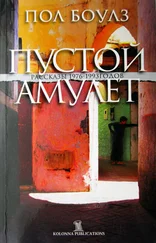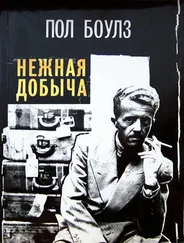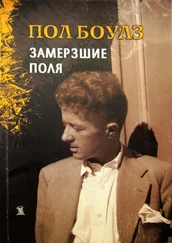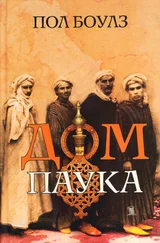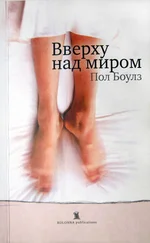Пол Боулз - Journey Through Morocco
Здесь есть возможность читать онлайн «Пол Боулз - Journey Through Morocco» весь текст электронной книги совершенно бесплатно (целиком полную версию без сокращений). В некоторых случаях можно слушать аудио, скачать через торрент в формате fb2 и присутствует краткое содержание. Год выпуска: 1963, Жанр: Современная проза, на английском языке. Описание произведения, (предисловие) а так же отзывы посетителей доступны на портале библиотеки ЛибКат.
- Название:Journey Through Morocco
- Автор:
- Жанр:
- Год:1963
- ISBN:нет данных
- Рейтинг книги:4 / 5. Голосов: 1
-
Избранное:Добавить в избранное
- Отзывы:
-
Ваша оценка:
- 80
- 1
- 2
- 3
- 4
- 5
Journey Through Morocco: краткое содержание, описание и аннотация
Предлагаем к чтению аннотацию, описание, краткое содержание или предисловие (зависит от того, что написал сам автор книги «Journey Through Morocco»). Если вы не нашли необходимую информацию о книге — напишите в комментариях, мы постараемся отыскать её.
magazine. (The original title was "The Route to Tassemsit".) Bowles begins his adventure by car in Tangier, driving through Chaouen, Marrakech, across the Middle, Grand and Anti-Atlas mountains, to Taroudant, Tiznit and Tafraout. He finally arrives at a remote village where he is entertained by musicians and dancers, while recording Moroccan music for the Library of Congress.
Journey Through Morocco — читать онлайн бесплатно полную книгу (весь текст) целиком
Ниже представлен текст книги, разбитый по страницам. Система сохранения места последней прочитанной страницы, позволяет с удобством читать онлайн бесплатно книгу «Journey Through Morocco», без необходимости каждый раз заново искать на чём Вы остановились. Поставьте закладку, и сможете в любой момент перейти на страницу, на которой закончили чтение.
Интервал:
Закладка:
The argan trees are everywhere, thousands of them, squat and thorny, anchored to the rocks that lie in their dubious shade. They flourish where nothing else can live, not even weeds or cacti. Their scaly bark looks like crocodile hide and feels like iron. Where the argan grows the goats have a good life. The trunk is short and the branches begin only a few feet from the ground. This suits the goats perfectly; they climb from branch to branch eating both the leaves and the greasy, bitter, olivelike fruit. Subsequently their excrement is collected, and the argan pits in it are pressed to make a thick cooking oil.
Tafraout is rough country ‑‑ the Bad Lands of South Dakota on a grand scale, with Death Valley in the background. The mountains are vast humps of solid granite, their sides strewn with gigantic boulders; at sunset the black line of their crests is deckle-edged in silhouette against the flaming sky. Seen from a height, the troughs between the humps are like long gray lakes, the only places in the landscape where there is at lest a covering of what might pass for loose earth. Above the level surface of this detritus in the valleys rise smooth expanses of solid rock.
The locusts have fed well here too. Tafraout could never subsist on its dates. But the bourgeois Berbers who live here learned long ago that organized commerce could provide greater security than either the pastoral or the agricultural life. They created a virtual monopoly on grocery and hardware stores all over Morocco. Taking his male children with him, a man goes to a city in the north where he has a shop (or several shops) and remains there for two or three years at a stretch, living usually in conditions of extreme discomfort, sleeping on the floor behind the counter.
Being industrious, thrifty and invariably successful, he is open to a good deal of adverse criticism from those of his compatriots who despise his frugal manner of living and deride his custom of leaving boys of eight in charge of his shops. But the children run the establishments quite as well as their elders: they know the price of every object and are equally difficult to deal with in the national pastime of persuading the seller to lower his asking price. The boys merely refuse to talk; often they do not even look at the customer. They quote the price, and if it is accepted, hand over the article and return the change. It is a very serious matter to be in charge of a store, and the boys behave accordingly.
As you come up from Tiznit over the pass, the first Tafraout settlements on the trail occur at the neck of a narrow valley; built among, underneath and on top of the great fallen lumps of granite, the fortress-houses dominate the countryside. It is hard to reconcile the architectural sophistication of these pink and white castles with the unassuming aspect of their owners back in the north, just as it is difficult to believe that the splendid women, shrouded in black and carrying copper amphoras or calfskin-covered baskets on their shoulders, can be these inconspicuous little men's wives and sisters. But then, no one would expect a tribe of shopkeepers to have originated in the fastnesses of this savage landscape.
We arrived at Tafraout about five in the afternoon, after having a puncture ten miles up the trail. Hotel completely empty, save for a handful of ragged children and one old gentleman in a djellaba who had been left in charge of the premises while the regular guardian was down in Tiznit. He helped with luggage, hung up our clothes, prepared the beds, brought pails of water for washing and bottles of drinking water, and filled the lamps with kerosene. Slept heavily and late. Woke once in night to hear a great chorus of howling and barking below in the village. Lunch better than dinner last night, but everything was drowned in an inch of hot oil. Tajine (stew) of beef, almonds, grapes, olives and onions. Came back up to the hotel to make coffee on the terrace afterward. The old man who received us last night was sitting in a corner, buried under his djellaba. He saw we were looking at magazines, got up and came over. Soon he said timidly: "Is that an American book you are reading?" I said it was. He pointed to a color photograph and asked: "And are the mountains in America really all green like that?" I told him many of them were. He stood a while studying the picture. Then he said bitterly: "It's not pretty here. The locusts eat the trees and all the rest of the plants. Here we're poor."
During the next few days I discovered how unrealistic my recording project had been. We visited at least two dozen villages in the region, and came no closer to uncovering an occasion where there might be music. The previous year even the government had needed thirty-six hours' notice for sending its directives via a network of caids and messengers up into the heights, before the musicians had put in their appearance in Tafraout. When Friday morning arrived, my driver said to me at breakfast: "What do you think? Do we leave tomorrow for Essaouira?" I said I supposed there was nothing else to do. Then I suggested we go down to the hospital to see if they had any Rovamycine, a French antibiotic effective in the treatment of intestinal infections. (Indispensable for traveling in the remoter regions of Morocco!)
A bearded Moroccan interne stood under a pepper tree in the hospital's patio, a syringe in his hand; he said the doctor had gone to Agadir for the weekend, but that if I wanted I could speak with the French pharmacist, who in the absence of his chief was in charge of the institution.
The pharmacist, a Monsieur Rousselot, arrived rubbing his eyes. He had been working all night, he told us. There was no Rovamycine. "It's an expensive drug. They don't supply us with that sort of thing here."
We invited him to the hotel for a whiskey. Alcoholic drinks are not on sale in Tafraout, since Moslems cannot drink legally. The only Europeans in the region were the doctor and the pharmacist, and they got by with an occasional bottle of wine or cognac they brought from Tiznit.
The pharmacist brought with him a Moroccan medical student who had just arrived from Rabat the day before; he thought Tafraout the strangest place he had ever seen. We sat on the terrace in the scalding sun and watched the crows flying in a slowly revolving circle high above the valley.
I was disappointed in my present visit, I told Monsieur Rousselot, because I hadn't got into the life of the people and because there was no edible food. The second reason touched the Frenchman in him. "I shall do my best to fill these unfortunate lacunae," he said. "First let us go to my house for lunch. I have a good chef."
The house behind the hospital was comfortable. There were several servants. Walls were lined with books, particularly art books, for like many French men of medicine, Monsieur Rousselot loved painting, and had a hankering to try his hand at it himself one day.
After lunch, as we sat over coffee and brandy, I complimented Monsieur Rousselot on the excellence of his food, told him how grateful we were for his kind invitation, and said I hoped we might see him again on a subsequent visit, since we would be leaving in the morning. Seddiq, the medical student, looked crestfallen.
"Oh, no! You can't go!" cried Monsieur Rousselot. "I have something much better for you tomorrow."
I said we had to start moving northward.
"But this is something special. Something I discovered. I've never shown it to anyone before."
"It's not possible," I said.
He pleaded. "Tomorrow is Saturday. Leave on Monday morning. We can spend tomorrow night in the palace and have Sunday morning for exploring the oases."
"Two days!" I cried. But the curiosity he had counted on awakening must have shown through my protestations. Before we left his house I had agreed to go to Tassemit. [Tassemsit is not the real name of the town. The author was taken there contingent upon the understanding that he would not use its true name.] I could scarcely have resisted, after his description of the place. According to him, Tassemsit was a feudal town at the bottom of a narrow canyon, which by virtue of being the seat of an influential religious brotherhood had so far escaped coming under the governmental jurisdiction, and was still functioning in a wholly traditional fashion. Absolute power was nominally in the hands of a nineteen-year-old girl, the present hereditary saint whose palace was inside the walls.
Читать дальшеИнтервал:
Закладка:
Похожие книги на «Journey Through Morocco»
Представляем Вашему вниманию похожие книги на «Journey Through Morocco» списком для выбора. Мы отобрали схожую по названию и смыслу литературу в надежде предоставить читателям больше вариантов отыскать новые, интересные, ещё непрочитанные произведения.
Обсуждение, отзывы о книге «Journey Through Morocco» и просто собственные мнения читателей. Оставьте ваши комментарии, напишите, что Вы думаете о произведении, его смысле или главных героях. Укажите что конкретно понравилось, а что нет, и почему Вы так считаете.

